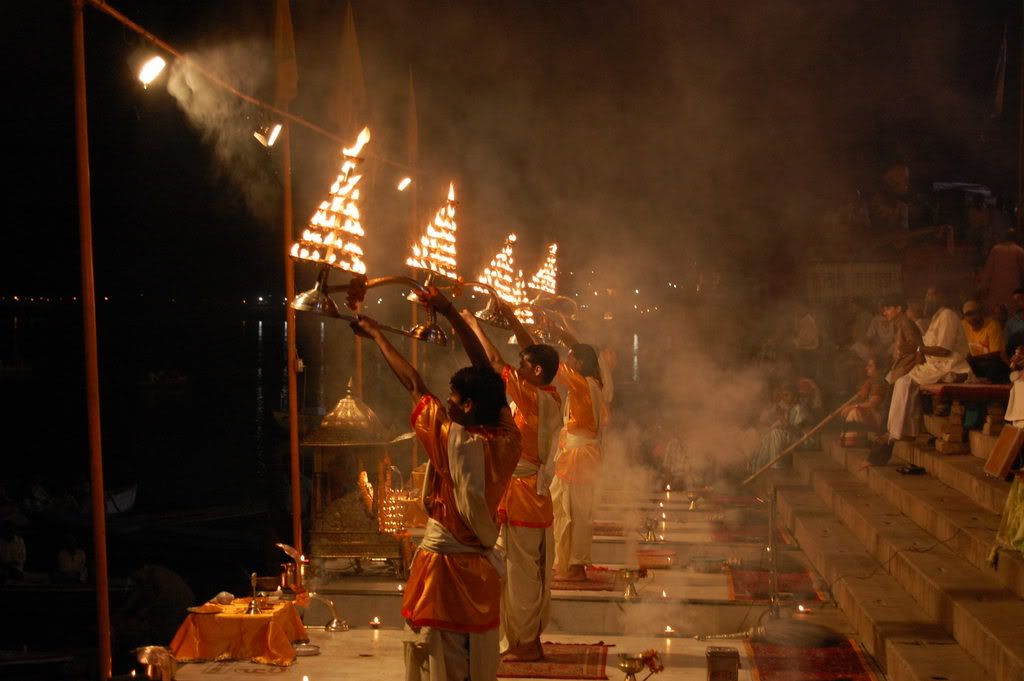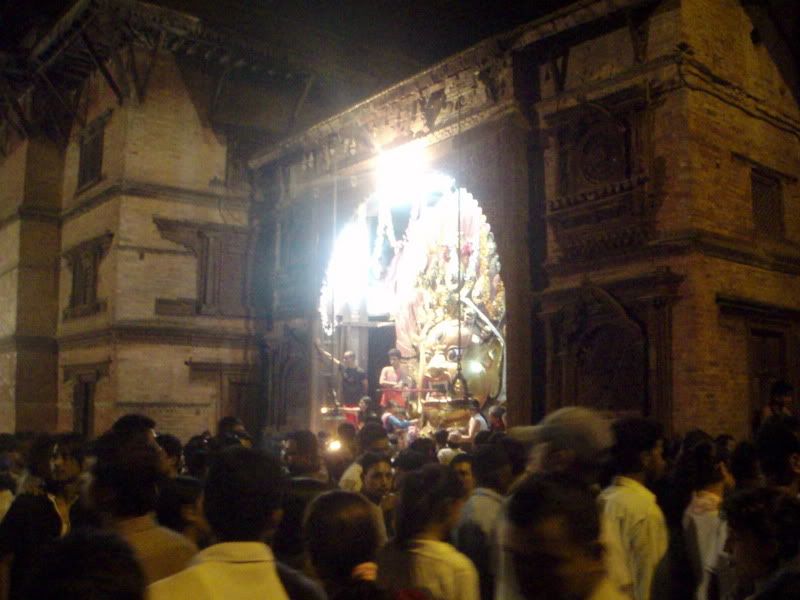A repost from back then:
I'm not going to comment too much on this Catholic Church timeline, because we've already touched on several of the topics, and Erika is doing a good job already. But I couldn't resist poking one or two holes in some of the claims.
The Latin language, as the language of prayer and worship in churches, was also imposed by Pope Gregory I, 600 years after Christ.
The Word of God forbids praying and teaching in an unknown tongue. (600)
I'm not sure the thought occurred to the authors, but Latin was actually the common language at this time, so quite the opposite of unknown.
The Papacy is of pagan origin. The title of pope or universal bishop, was first given to the bishop of Rome by the wicked emperor Phocas. (610)
I'd like to submit some evidence that these distinctively Catholic beliefs were held long before the dates they use.
"The church of God which sojourns at Rome to the church of God which sojourns at Corinth ... But if any disobey the words spoken by him through us, let them know that they will involve themselves in transgression and in no small danger." Clement of Rome, Pope, 1st Epistle to the Corinthians, 1,59:1 (c. A.D. 96).
"And he says to him again after the resurrection, 'Feed my sheep.' It is on him that he builds the Church, and to him that he entrusts the sheep to feed. And although he assigns a like power to all the apostles, yet he founded a single Chair, thus establishing by his own authority the source and hallmark of the (Church's) oneness. No doubt the others were all that Peter was, but a primacy is given to Peter, and it is (thus) made clear that there is but one flock which is to be fed by all the apostles in common accord. If a man does not hold fast to this oneness of Peter, does he imagine that he still holds the faith? If he deserts the Chair of Peter upon whom the Church was built, has he still confidence that he is in the Church? This unity firmly should we hold and maintain, especially we bishops, presiding in the Church, in order that we may approve the episcopate itself to be the one and undivided." Cyprian, The Unity of the Church, 4-5 (A.D. 251-256).
"After such things as these, moreover, they still dare--a false bishop having been appointed for them by, heretics--to set sail and to bear letters from schismatic and profane persons to the throne of Peter, and to the chief church whence priestly unity takes its source; and not to consider that these were the Romans whose faith was praised in the preaching of the apostle, to whom faithlessness could have no access." Cyprian, To Cornelius, Epistle 54/59:14 (A.D. 252).
”The reason for your absence was both honorable and imperative, that the schismatic wolves might not rob and plunder by stealth nor the heretical dogs bark madly in the rapid fury nor the very serpent, the devil, discharge his blasphemous venom. So it seems to us right and altogether fitting that priests of the Lord from each and every province should report to their head, that is, to the See of Peter, the Apostle." Council of Sardica, To Pope Julius (A.D. 342).
Note: Clement, 3rd bishop of Rome, remarks "that there is no real 1st century evidence that Peter ever was in Rome."
That would be an awfully strange thing to remark, seeing as how Clement lived in the 1st century.
Holy Water, mixed with a pinch of salt and blessed by the priest, was authorized.As milehimama pointed out, this comes from Scripture, though I'm not sure of the date for the book of Kings:
2 Kings 2:19-21
19 The men of the city said to Elisha, "Look, our lord, this town is well situated, as you can see, but the water is bad and the land is unproductive."
20 "Bring me a new bowl," he said, "and put salt in it." So they brought it to him.
21 Then he went out to the spring and threw the salt into it, saying, "This is what the LORD says: 'I have healed this water. Never again will it cause death or make the land unproductive.' " 22 And the water has remained wholesome to this day, according to the word Elisha had spoken.
The Mass was developed gradually as a sacrifice; attendance made obligatory in the 11th century.
"It is good and beneficial to communicate every day, and to partake of the holy body and blood of Christ. For He distinctly says, 'He that eateth my flesh and drinketh my blood hath eternal life.' And who doubts that to share frequently in life, is the same thing as to have manifold life. I, indeed, communicate four times a week, on the Lord's day, on Wednesday, on Friday, and on the Sabbath, and on the other days if there is a commemoration of any Saint.” Basil, To Patrician Caesaria, Epistle 93 (A.D. 372)."Dearly-beloved, utter this confession with all your heart and reject the wicked lies of heretics, that your fasting and almsgiving may not be polluted by any contagion with error: for then is our offering of the sacrifice clean and oar gifts of mercy holy, when those who perform them understand that which they do. For when the Lord says, "unless ye have eaten the flesh of the Son of Man, and drunk His blood, ye will not have life in you,' you ought so to be partakers at the Holy Table, as to have no doubt whatever concerning the reality of Christ's Body and Blood. For that is taken in the mouth which is believed in Faith, and it is vain for them to respond Amend who dispute that which is taken." Pope Leo the Great, Sermon, 91:3 (ante A.D. 461).
The dogma of Transubstantiation was decreed by Pope Innocent III, in th year 1215.
"For not as common bread and common drink do we receive these; but in like manner as Jesus Christ our Saviour, having been made flesh and blood for our salvation, so likewise have we been taught that the food which is blessed by the prayer of His word, and from which our blood and flesh by transmutation are nourished, is the flesh and blood of that Jesus who was made flesh." Justin Martyr, First Apology, 66 (A.D. 110-165).
"They abstain from the Eucharist and from prayer, because they confess not the Eucharist to be the flesh of our Saviour Jesus Christ, which suffered for our sins, and which the Father, of His goodness, raised up again." Ignatius of Antioch, Epistle to Smyrnaeans, 7,1 (c. A.D. 110).
"For the blood of the grape--that is, the Word--desired to be mixed with water, as His blood is mingled with salvation. And the blood of the Lord is twofold. For there is the blood of His flesh, by which we are redeemed from corruption; and the spiritual, that by which we are anointed. And to drink the blood of Jesus, is to become partaker of the Lord's immortality; the Spirit being the energetic principle of the Word, as blood is of flesh. Accordingly, as wine is blended with water, so is the Spirit with man. And the one, the mixture of wine and water, nourishes to faith; while the other, the Spirit, conducts to immortality. And the mixture of both--of the water and of the Word--is called Eucharist, renowned and glorious grace; and they who by faith partake of it are sanctified both in body and soul." Clement of Alexandria, The Instructor, 2 (ante A.D. 202).
"He once in Cana of Galilee, turned the water into wine, akin to blood, and is it incredible that He should have turned wine into blood?" Cyril of Jerusalem, Catechetical Lectures, XXII:4 (c. A.D. 350).
"Having learn these things, and been fully assured that the seeming bread is not bread, though sensible to taste, but the Body of Christ; and that the seeming wine is not wine, though the taste will have it so, but the Blood of Christ; and that of this David sung of old, saying, And bread strengtheneth man's heart, to make his face to shine with oil, 'strengthen thou thine heart,' by partaking thereof as spiritual, and "make the face of thy soul to shine."" Cyril of Jerusalem, Catechetical Lectures, XXII:8 (c. A.D. 350).
"Then having sanctified ourselves by these spiritual Hymns, we beseech the merciful God to send forth His Holy Spirit upon the gifts lying before Him; that He may make the Bread the Body of Christ, and the Wine the Blood of Christ; for whatsoever the Holy Ghost has touched, is surely sanctified and changed." Cyril of Jerusalem, Catechetical Lectures, XXIII:7 (c. A.D. 350).
Confession of sin to the priest at least once a year was instituted by Pope Innocent III, in the Lateran Council. (1215)
“In church confess your sins, and do not come to your prayer with a guilt conscience. Such is the Way of Life...On the Lord's own day, assemble in common to break bread and offer thanks; but first confess your sins, so that your sacrifice may be pure." Didache, 4:14,14:1 (c. A.D. 90).
"Father who knowest the hearts of all grant upon this Thy servant whom Thou hast chosen for the episcopate to feed Thy holy flock and serve as Thine high priest, that he may minister blamelessly by night and day, that he may unceasingly behold and appropriate Thy countenance and offer to Thee the gifts of Thy holy Church. And that by the high priestly Spirit he may have authority to forgive sins..." Hippolytus, Apostolic Tradition, 3 (A.D. 215).
"In addition to these there is also a seventh, albeit hard and laborious: the remission of sins through penance...when he does not shrink from declaring his sin to a priest of the Lord." Origen, Homilies on Leviticus, 2:4 (A.D. 248).
"For although in smaller sins sinners may do penance for a set time, and according to the rules of discipline come to public confession, and by imposition of the hand of the bishop and clergy receive the right of communion: now with their time still unfulfilled, while persecution is still raging, while the peace of the Church itself is not vet restored, they are admitted to communion, and their name is presented; and while the penitence is not yet performed, confession is not yet made, the hands Of the bishop and clergy are not yet laid upon them, the eucharist is given to them; although it is written, 'Whosoever shall eat the bread and drink the cup of the Lord unworthily, shall be guilty of the body and blood of the Lord.'" Cyprian, To the Clergy, 9 (16):2 (A.D. 250).
Item: "Bible forbidden to laymen, placed on the Index of Forbidden Books by the Council of Valencia . . . [A.D.] 1229."
This looks rather damaging, but Boettner has his history completely wrong. The first thing to note is that the Index of Forbidden Books was established in 1559, so a council held in 1229 could hardly have listed a book on it.
The second point is that there apparently has never been any Church council in Valencia, Spain. If there had been one, it could not have taken place in 1229 because Muslim Moors then controlled the city. It is inconceivable that Muslims, who were at war with Spanish Christians, and had been off and on for five centuries, would allow Catholic bishops to hold a council in one of their cities. The Christian armies did not liberate Valencia from Moorish rule until nine years later, 1238. So Valencia is out.
Let's not forget the pagan innovation of candles used in Catholic Churches!
An example of "pagan" Jews using wax candles in worship. Perhaps they would be surprised that the Catholic Church gets credit for this "innovation."

I think this also begs the question as to what should be used an alternative for church lighting. If electric lights are the Christian thing to use, then I think you'd be showing a pretty recent founding for your church.
Besides, these pagans are using electric lights AND candles in their worship:

Actually, I visited a Hindu temple once on a field trip, and all of the statues were decorated with electric lights, similar to this:

I'm not really sure what lighting alternative we would have left if we ruled out everything that pagans use. After all, they can sit around in the sunlight and moonlight, too.
4 comments:
I see that London Mayor, Boris Johnson, wants Latin to be taught in all London schools. But why not Esperanto?
Pope Benedict also used this new international language last year in his Urbi et Orbi address from the Vatican, at Christmas.
Your readers may be interested in http://uk.youtube.com/watch?v=_YHALnLV9XU . Professor Piron was a translator for the United Nations in Geneva.
A glimpse of Esperanto can be seen at http://www.lernu.net
But why not Esperanto?
But WHY Esperanto?
My son goes to a school (in London) where he learns Latin. He's also doing Greek GCSE. I'm not sure I see the point of Esperanto.
"He once in Cana of Galilee, turned the water into wine, akin to blood, and is it incredible that He should have turned wine into blood?" Cyril of Jerusalem, Catechetical Lectures, XXII:4 (c. A.D. 350).
------------------
"4. Christ on a certain occasion discoursing with the Jews said, Except you eat My flesh and drink My blood, you have no life in you. John 6:53 They not having heard His saying in a spiritual sense were offended, and went back, supposing that He was inviting them to eat flesh.
Cyril of Jerusalem, Catechetical Lectures, XXII:4 (c. A.D. 350).
source:
http://www.newadvent.org/fathers/310122.htm
The Word of God forbids praying and teaching in an unknown tongue. (600)
Where? In 1 Cor. 14? Tell me where.
This is superstition.
The root cause of the myriad of human languages was sin, according to the Bible. The gift of the Holy Spirit to the Church at Pentecost was a renewed uniformity of human language. And the Catholic Church carried this forward: first Greek, then Latin.
How does someone learn an unknown tongue unless one practices it? What about missionaries who may be less than fluent? IOW, there are varying degrees of not knowing a foreign tongue. When does it cross the line and violate this supposed prohibition?
Post a Comment